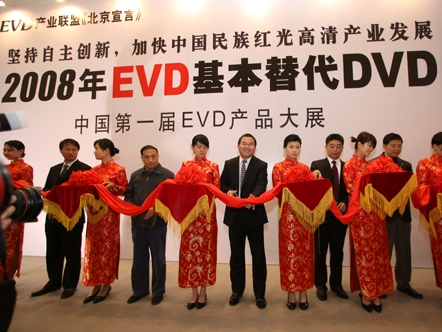Chinese to challenge Blu-ray and HD DVD
50 EVD players revealed at launch, disc to replace DVD

If you thought the so-called next-generation video format war was a straight fight for the high-definition crown between HD DVD and Blu-ray, then you'd better think again. As of yesterday, China's intention to promote a third way became a reality when it announced concrete promotion plans for a format known as EVD .
Enhanced Versatile Disc, to give it its full name, is being promoted as a cheaper alternative to the other two blue laser-based, formats. EVD uses the same red laser as DVDs to record data on a disc and so eliminates the need for expensive retooling of manufacturing plants.
EVD manages to get HD TV onto a standard disc by using a new compression technology - essentially, the discs hold about the same amount of data as DVDs but, unlike DVDs, can fit high-def images into that same space.
To prove their intent, members of the EVD forum held an unveiling for over 50 EVD players and also announced that they would all be stopping selling and promoting DVD and switching to EVD by 2008. The state-backed scheme aims to reduce reliance on non-Chinese technology and to seek licencing fees if EVD makes it overseas.
Given that the group's members currently account for 90 percent of DVD sales in China and that players will cost around 700 Yuan (£45) each, the prospects for success, at least in China, look healthy. J Mark Lytle
Get daily insight, inspiration and deals in your inbox
Sign up for breaking news, reviews, opinion, top tech deals, and more.
Tech.co.uk was the former name of TechRadar.com. Its staff were at the forefront of the digital publishing revolution, and spearheaded the move to bring consumer technology journalism to its natural home – online. Many of the current TechRadar staff started life a Tech.co.uk staff writer, covering everything from the emerging smartphone market to the evolving market of personal computers. Think of it as the building blocks of the TechRadar you love today.